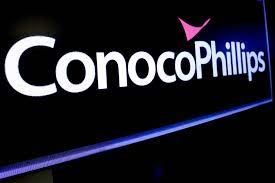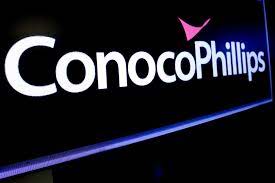
ConocoPhillips has been named as the third and final partner on QatarEnergy's North Field South expansion, a component of the largest liquefied natural gas (LNG) project in the history of the world, by the company's chief executive on Sunday.
According to Saad al-Kaabi, who spoke at a press conference, ConocoPhillips will hold a 6.25% interest in the project.
Shell and TotalEnergies had already been named as partners in the North Field South expansion by the state-owned QatarEnergy, according to Kaabi, and each would own a 9.375% stake.
The North Field is a portion of the largest gas field in the world, which Qatar and Iran both call South Pars.
Early this year, QatarEnergy signed agreements for North Field East, the first and larger of the two phases of the North Field expansion plan. This phase will include six LNG trains, increasing Qatar's liquefaction capacity from 77 million tonnes per year to 126 million tonnes per year by 2027.
Since the Russian invasion of Ukraine in February resulted in reductions in Moscow's gas supplies, LNG supplies and capacity have assumed a special significance.
As "value-added partners" who "will have a small equity participation" in the North Field expansion, Kaabi said negotiations were still ongoing with a number of Asian buyers, but that all of the Western international partners had already been disclosed.
He stated that several supply agreements were being discussed in relation to the North Field expansion and that announcements would be made soon.
"It's difficult to give a timeline on when these will be ready," he said.
Additionally, according to Kaabi, QatarEnergy and ExxonMobil's LNG facility in Texas, Golden Pass, will begin exporting gas in the fourth quarter of 2024.
ConocoPhillips CEO Ryan Lance stated at the news conference in Doha that restrictions on fuel exports, which are being considered by the administration of U.S. President Joe Biden to reduce consumer prices, would be detrimental to the country in the long run.
"If you start to restrict access going into global markets, you restrict the supply that's out there, the price will go up," Lance said. "And since they trade on a global market, the U.S. price would go up as well."
(Source:www.thepeninsulaqatar.com)
According to Saad al-Kaabi, who spoke at a press conference, ConocoPhillips will hold a 6.25% interest in the project.
Shell and TotalEnergies had already been named as partners in the North Field South expansion by the state-owned QatarEnergy, according to Kaabi, and each would own a 9.375% stake.
The North Field is a portion of the largest gas field in the world, which Qatar and Iran both call South Pars.
Early this year, QatarEnergy signed agreements for North Field East, the first and larger of the two phases of the North Field expansion plan. This phase will include six LNG trains, increasing Qatar's liquefaction capacity from 77 million tonnes per year to 126 million tonnes per year by 2027.
Since the Russian invasion of Ukraine in February resulted in reductions in Moscow's gas supplies, LNG supplies and capacity have assumed a special significance.
As "value-added partners" who "will have a small equity participation" in the North Field expansion, Kaabi said negotiations were still ongoing with a number of Asian buyers, but that all of the Western international partners had already been disclosed.
He stated that several supply agreements were being discussed in relation to the North Field expansion and that announcements would be made soon.
"It's difficult to give a timeline on when these will be ready," he said.
Additionally, according to Kaabi, QatarEnergy and ExxonMobil's LNG facility in Texas, Golden Pass, will begin exporting gas in the fourth quarter of 2024.
ConocoPhillips CEO Ryan Lance stated at the news conference in Doha that restrictions on fuel exports, which are being considered by the administration of U.S. President Joe Biden to reduce consumer prices, would be detrimental to the country in the long run.
"If you start to restrict access going into global markets, you restrict the supply that's out there, the price will go up," Lance said. "And since they trade on a global market, the U.S. price would go up as well."
(Source:www.thepeninsulaqatar.com)














